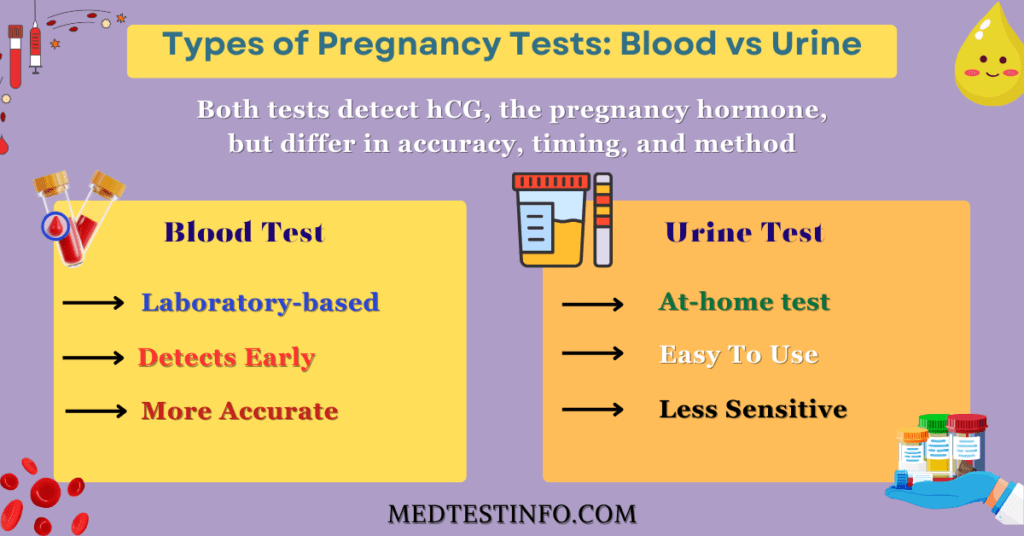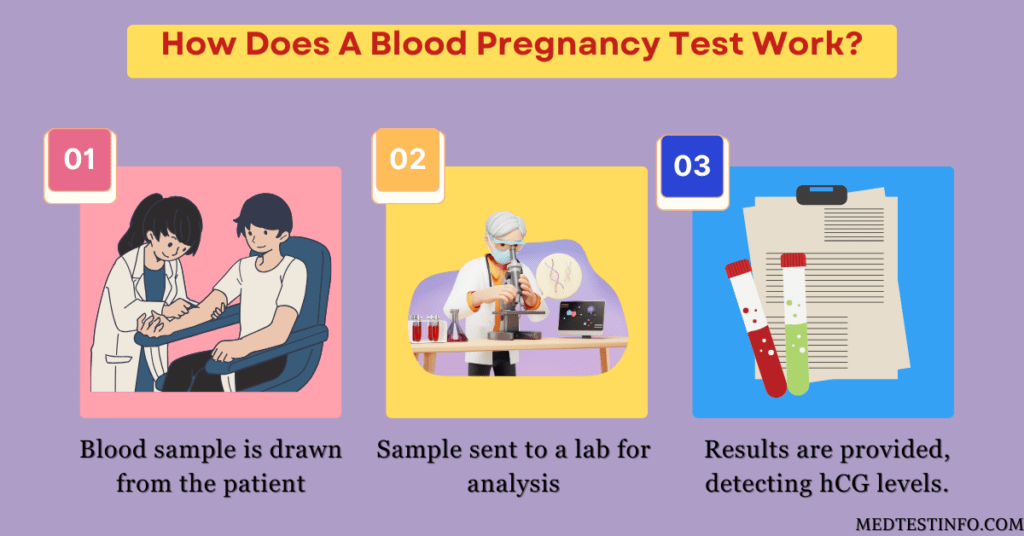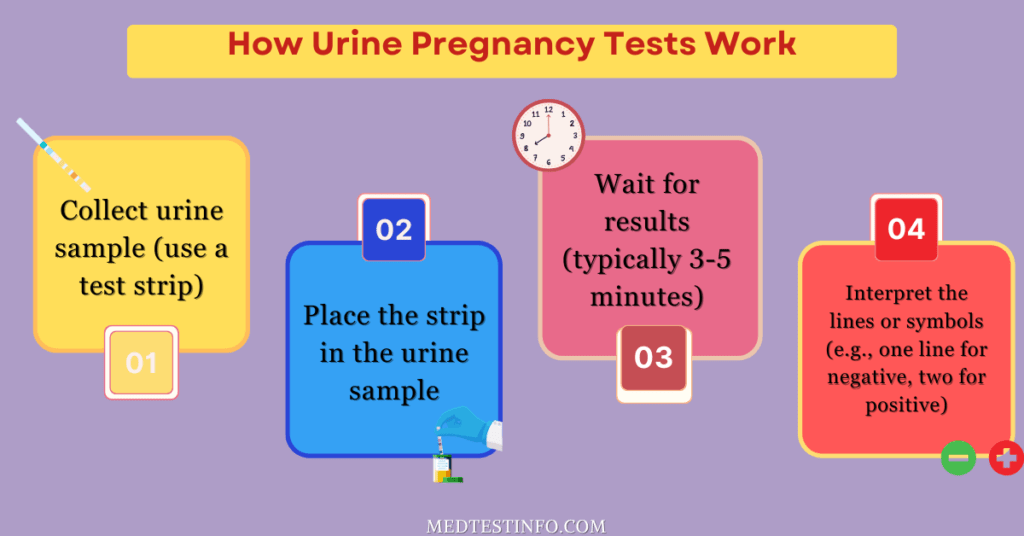
Overview
Pregnancy testing is frequently one of the first procedures done to confirm a suspected pregnancy, whether it be the result of early symptoms or a missing period. There are now two types of pregnancy tests: blood and urine. Both tests detect hCG, a pregnancy hormone, but each has unique characteristics, benefits, and limitations.
Why Are Blood And Urine Tests So Standard?
Blood and urine tests are vital for providing precise findings when verifying a pregnancy. Blood tests for pregnancy are usually performed in a medical context and are known for their high sensitivity and early detection capabilities. On the other hand, home pregnancy tests are viral. They are simple to administer, widely available, and provide an immediate answer to the query, “Am I pregnant?”
Understanding these distinctions can assist people in determining which exam is most appropriate for their situation. While urine tests are helpful for initial screening, blood testing may be preferable for people seeking early confirmation or a more precise measurement of hCG levels. Let’s take a closer look at each type of test’s reliability, precision, and timing.
What Is hCG, And How Does It Relate To Pregnancy Tests?
Blood and urine tests detect hCG, a hormone released after fertilizing eggs attached to the uterine lining. This hormone is a key pregnancy indicator. The levels of hCG vary widely from person to person and rise as the pregnancy advances, which is why some tests detect it earlier than others.
Knowing whether to use a blood test instead of a urine test—or vice versa—is critical for those who require reliable and early pregnancy confirmation.
After a few days of conception, blood tests can detect hCG, while urine tests are typically done after a missed period.
Blood Test For Pregnancy

Blood tests are a reliable way to diagnose pregnancy for individuals looking for early confirmation or more detailed results. Unlike home urine tests, which are usually conducted after a missed period, blood tests for pregnancy can detect hCG considerably earlier. This makes them a better option for people who need to know their hCG levels sooner or want more accurate information.
How Does A Blood Test For Pregnancy Work?
A blood test for pregnancy is a laboratory-based procedure that detects the presence of human chorionic gonadotropin (hCG) in your blood. When a fertilized egg attaches to the uterine wall, the body starts generating hCG, which enters the bloodstream. Blood tests can detect trace quantities of this hormone, allowing for pregnancy detection as early as 6 to 8 days after conception, depending on the test’s sensitivity.
There are two primary types of blood tests used to confirm pregnancy:
Qualitative hCG Test
The qualitative hCG test merely confirms whether or not hCG is present in the bloodstream. If hCG is discovered, it usually implies a pregnancy. This test does not measure the exact level of hCG; instead, it gives a “yes” or “no” answer to the pregnancy question.
Quantitative hCG Test
Also known as a quantitative blood test for pregnancy, this test determines the precise quantity of hCG in the blood. This allows healthcare providers to confirm pregnancy and track hCG levels over time. Quantitative tests are frequently employed in early pregnancy monitoring or scenarios requiring further information about the pregnancy’s progression.
Benefits Of Blood Tests For Pregnancy
Blood tests for pregnancy are noted for their accuracy and early detection capabilities, offering a few unique advantages over urine tests:
Higher Sensitivity for Early Detection: Blood tests are more sensitive for early pregnancy detection than urine tests because they detect lower quantities of hCG. For those asking how early a blood test may identify pregnancy, the answer is usually within a week of conception. This makes blood tests a good choice for early confirmation, particularly for women who have irregular periods.
Greater Accuracy: Because blood tests are administered in a laboratory setting, they are often more reliable than home urine tests, which are susceptible to human error and other variables such as urine concentration.
Detailed hCG Measurement: A quantitative blood test allows healthcare personnel to measure the amount of hCG in the blood precisely. This information can be important for monitoring the pregnancy’s health, as hCG levels should rise at specific rates. In some circumstances, these metrics help identify possible problems early on.
Useful for High-Risk or Complicated Pregnancies: Blood tests are frequently indicated for people in high-risk pregnancies or those who require close monitoring. People who have had previous pregnancy issues or have health concerns, for example, may choose a blood test to obtain more information.
Why Would You Choose A Blood Test Over A Urine Test?
Sometimes, a blood test may be better than a urine test.
When Early Detection is Required: For those who wish to confirm pregnancy as soon as possible, a blood test can offer results faster than a urine test.
Monitoring hCG levels: A quantitative blood test helps track hCG levels over time, such as in fertility treatments or high-risk pregnancies.
If You Are Concerned About Pregnancy Health: Blood testing can provide extra helpful information for those with specific health concerns or previous pregnancy complications.
In conclusion, blood tests for pregnancy produce trustworthy and thorough findings, making them an excellent choice for early and precise pregnancy confirmation. Whether qualitative or quantitative, blood tests are a compassionate means of detecting pregnancy.
Urine Test For Pregnancy

Urine tests for pregnancy are one of the most common ways to confirm pregnancy at home. These tests are widely available, simple to administer, and produce fast findings. They are designed to detect the presence of human chorionic gonadotropin (hCG) in urine and provide a simple, first-line method for confirming pregnancy quickly after a missed period.
How Do Urine Pregnancy Tests Work?
A urine pregnancy test detects hCG, a hormone the placenta generates shortly after a fertilized egg implants in the uterine lining. As hCG levels rise in the body, they appear in urine. Most home pregnancy tests detect hCG when levels reach a certain threshold, which is typically around the time of a missed period or two weeks following conception.
Collect a Sample: Either urinate directly on the test stick or in a clean cup, then dip the test stick into the sample.
Wait for Results: Follow the test instructions and typically wait a few minutes for the results to appear.
Interpret the Results: Most tests indicate the presence of hCG with a “+” or “-” sign, two lines, or another signal.
Urine tests for pregnancy include simple instructions because they are intended for home usage. However, you must strictly adhere to these instructions to achieve correct results. Incorrect usage or testing too early can result in false readings.
Advantages Of Using A Urine Pregnancy Test
Urine tests are a popular method of pregnancy confirmation due to its accessibility and ease of use. Some of the significant benefits include:
Convenience and Privacy: Home pregnancy tests are available over-the-counter in pharmacies and online, allowing for quick and discreet testing at home. Individuals can quickly check for pregnancy without attending a doctor’s office.
Quick and Easy Results: Results from a urine test are available in minutes, offering an immediate answer for those seeking to confirm a pregnancy. This is great for individuals who want a quick and easy way to confirm pregnancy.
Affordability: Urine pregnancy tests are usually less expensive than blood tests. Many brands provide reliable testing at moderate prices, with various sensitivity levels. Because of their low cost, they are accessible to nearly everyone.
When Are Urine Tests For Pregnancy Most Reliable?
A urine pregnancy test is most effective when taken shortly after a missed menstruation. Although several tests promise early detection, hCG levels in urine may still be too low to yield a positive result if tested too soon.
For optimum accuracy
Wait until your missed period or later to test. Testing before this point may result in a false negative since the hCG levels are insufficient to detect.
Use first-morning urine when testing early in pregnancy. Because hCG concentrations are highest in the morning, accuracy can be improved.
It’s also worth noting that diluted urine or inappropriate use can reduce the reliability of a urine test. While most home pregnancy tests are accurate when used correctly, there is always the potential of a false negative, mainly if the test is performed too early.
When To Consider A Blood Test Instead Of A Urine Test
While urine tests are handy and practical in most cases, there are times when a blood test is more appropriate. A blood test may provide earlier confirmation for people who require early detection. Furthermore, patients who need precise hCG levels, such as in high-risk pregnancies or for specific medical reasons, may benefit more from a blood test. When a urine test yields ambiguous or unexpected results, seeing a healthcare provider for a blood test can help provide further information.
To summarize, urine tests for pregnancy are a convenient, inexpensive, and simple way to confirm pregnancy at home. If you’re wondering whether to use a pregnancy test, blood, or urine, urine tests are an excellent place to start and are highly accurate when taken around the time of a missed period. However, a blood test may be the best option for early detection or more detailed information.
Comparison Of Blood And Urine Tests For Accuracy And Timing
Understanding the differences in accuracy, sensitivity, and timing between blood and urine tests will help you decide which method is most reliable for confirming pregnancy. While both tests aim to detect the presence of human chorionic gonadotropin (hCG), they differ in terms of pregnancy detection time and precision.
Which Test Is More Accurate?
Both blood and urine tests are generally reliable, but blood tests are more accurate. Blood tests, performed in labs, are less prone to error and can detect lower hCG levels than urine tests. Take a closer look at how accuracy compares:
Blood Tests: Blood tests detect hCG levels as low as 1-5 mIU/mL, confirming pregnancy earlier than urine tests. They also measure exact hCG amounts, providing more precise results for early confirmation or close monitoring.
Urine Tests: Urine tests usually have a sensitivity threshold of 20-25 mIU/mL, reached around the time of the missed period. They are accurate when used correctly, but some circumstances, such as testing too early or with diluted urine, can result in false negatives.
People generally find blood tests more accurate, particularly for early detection or high-risk pregnancies requiring precise hCG levels.
How Soon Can Each Test Detect Pregnancy?
Timing is another important consideration when deciding between a blood test and a urine test for pregnancy. Each test has its schedule for detecting hCG levels, which affects when you should expect a solid result:
Blood Test Timing: hCG can be detected as early as 6 to 8 days after pregnancy. This is due to the test’s increased sensitivity, which allows it to detect even low quantities of hCG before they appear in the urine.
Urine Test Timing: Urine tests should be used on the first day of a missing period or about 14 days after ovulation. While some sensitive urine tests claim to identify pregnancy earlier, checking too early increases the risk of a false negative result because hCG levels may be insufficient for detection.
Factors That Can Affect The Accuracy Of Pregnancy
Both tests are highly accurate when administered appropriately. However, some factors can impact their usefulness.
Testing too early: Testing before hCG levels are evident in the blood or urine can lead to a false negative. This less influences blood tests since they are sensitive to lower hCG levels.
Urine Dilution: Drinking a lot of water before a urine test will dilute the hCG levels, reducing the accuracy of a home pregnancy test. Concentrated first-morning urine can increase dependability.
Test Procedures: Healthcare professionals administer blood tests, reducing the likelihood of errors. Urine tests, on the other hand, rely on precise usage and time. Thus, it is critical to adhere to the test instructions strictly.
Test For Pregnancy Based On Accuracy And Timing
If you’re wondering if a pregnancy test, blood, or urine is more accurate, a blood test may be the better option for early discovery, medical monitoring, or more precise results. For example:
Choose a blood test to confirm pregnancy quickly (during the first week of conception) or if you need precise hCG values for health monitoring.
Choose a urine test if you prefer the convenience and privacy of testing at home or are testing after a missed period, hCG levels are more significant and more straightforward to detect.
In summary, while urine tests are highly successful for most people, blood tests are more accurate and sensitive, making them ideal for those who require early confirmation or more precise information. Each option offers advantages, and understanding the differences will help you make the best decision for your circumstances.
Factors Influencing Test Choice
Choosing between a blood test and a urine test for pregnancy depends on several personal and situational considerations. While both tests seek to detect pregnancy accurately, factors such as medical history, timing, cost, and personal preferences frequently impact the ideal choice for a particular individual.
Personal And Medical Factors
For some people, health issues or high-risk pregnancies necessitate more excellent monitoring of hCG levels. Therefore, blood tests are the preferable method. Blood tests can accurately determine hCG levels, which is helpful in the following cases:
High-Risk Pregnancies: Blood tests monitor hCG levels in high-risk pregnancies caused by factors such as age, previous complications, or health conditions.
Medical Supervision: Individuals with a history of miscarriage or fertility treatments may choose blood testing to guarantee more precise monitoring of early pregnancy.
Need for Early Detection: Some people seek early confirmation of pregnancy for personal or medical reasons, and blood tests can identify pregnancy several days before a missing menstruation occurs.
Cost Considerations
The price of pregnancy tests can vary greatly, especially between blood and urine tests.
Urine Tests: Home pregnancy tests are generally inexpensive, and single-use tests are available at various costs to accommodate different budgets. Many people use urine tests because they are cheap and easily accessible.
Blood Tests: Blood tests necessitate a visit to a healthcare professional, which may result in additional costs, mainly if insurance does not cover the treatment. Some people may find it more cost-effective to start with a home urine test and then proceed to a blood test if they need additional confirmation.
For individuals concerned about costs, starting with a urine test can be a reasonable option. Individuals who require early confirmation or precision may find the price of a blood test justified.
Convenience And Accessibility
Accessibility to healthcare providers and personal privacy preferences can significantly impact test selection.
Convenience of Urine Tests: Urine tests are convenient as people can buy them over the counter and use them privately at home. This makes them extremely useful for people looking to confirm pregnancy swiftly and independently.
Accessibility of Blood Tests: Blood tests involve visiting a medical facility, which is not always convenient. This can be problematic for people living in isolated areas or who need more healthcare access.
When privacy and convenience are essential, people frequently select urine tests over other options. Blood tests may suit those who value accuracy above convenience.
Situational Needs And Particular Circumstances
Certain events or needs may influence whether a person chooses to have a blood or urine test. For example:
Situations Requiring Detailed Monitoring: For people taking fertility treatments, blood tests provide precise hCG values, allowing them to track pregnancy progression correctly.
Uncertain Urine Test Results: If a home urine test result is faint, unclear, or does not correspond to symptoms, a blood test can provide a more definitive response.
Time-sensitive Situations: Those who require early pregnancy confirmation may benefit from a blood test. Because blood tests can identify lower hCG levels faster, they are appropriate for time-sensitive situations.
Finally, the decision between a blood test and a urine test for pregnancy should be based on each individual’s specific requirements and circumstances. While urine tests are a convenient and cost-effective answer for most individuals, blood tests have higher accuracy and sensitivity, making them the preferred alternative in some cases.
Conclusion
Consider accuracy, timing, and personal factors when choosing blood and urine tests. Blood tests detect pregnancy early, while urine tests are convenient and affordable.
A blood test is ideal for those needing prompt, precise confirmation, such as high-risk pregnancies or fertility treatments. It detects pregnancy 6-8 days after conception, offering peace of mind and frequent monitoring.
A home urine test is a quick, reliable solution, mainly used on the first day after a missed period. Urine tests, when used correctly, are an effective and confidential way to confirm pregnancy without requiring a medical visit.
If you need help deciding which choice is best for you, consulting with a healthcare expert can help. They can advise on whether a blood test would be beneficial based on your specific circumstances or medical history.
Understanding each test’s strengths and limits helps you choose the best option for early confirmation, convenience, or accuracy. Selecting the correct test provides reliable, timely information to begin your pregnancy journey.


